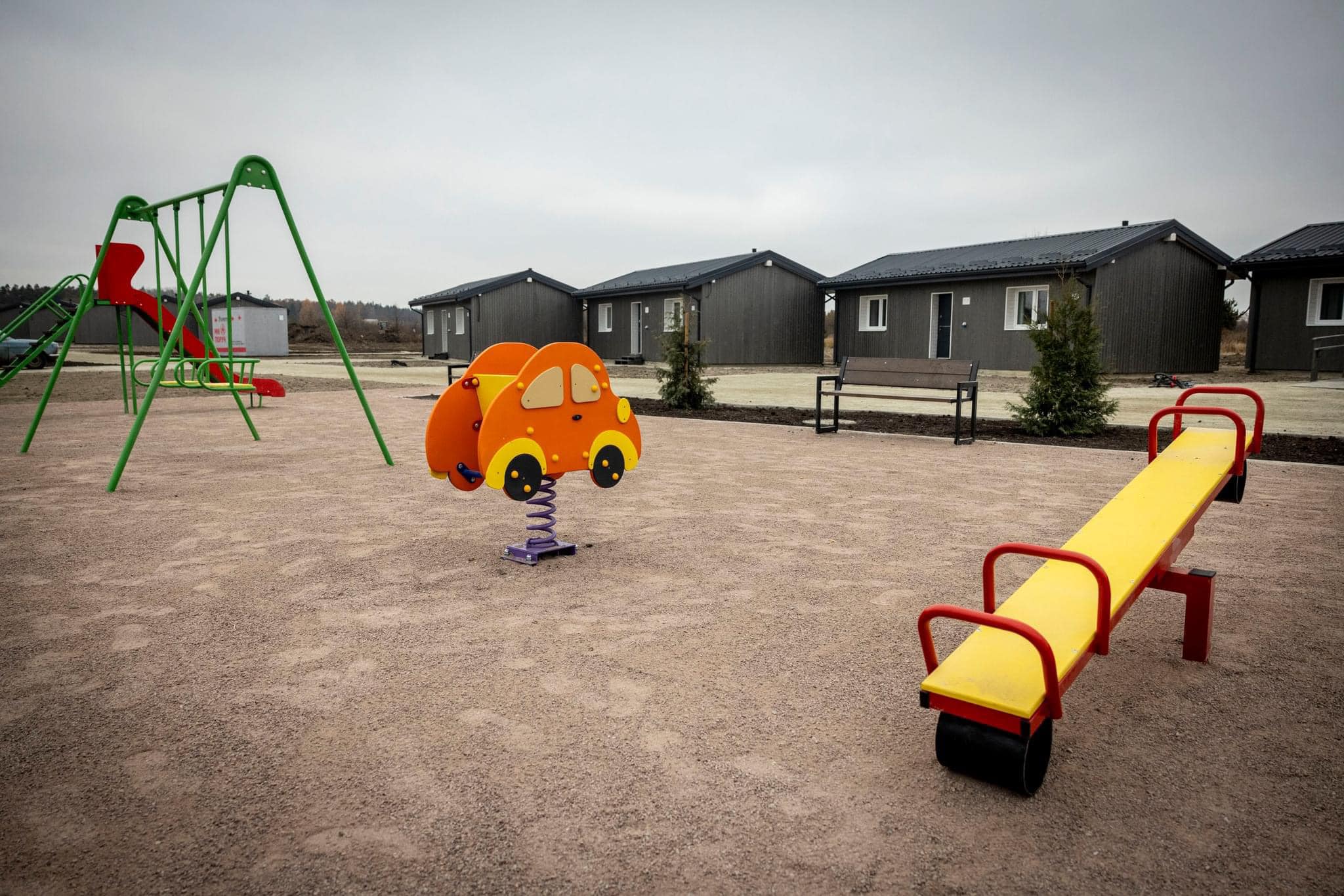Mid-November. Suburbs of Zhytomyr. In the private sector near the forest, there’s no place to park a car – a lot of people have come to the opening of the modular town for displaced persons. Several rows of minimalist gray houses, a wide gravel-paved road, a playground.
The first house is open. Everyone who wants to take a look enters. “This is where we will live,” says a woman with short blonde hair and bright lipstick proudly. Next to her, a bored teenage son, also blonde and short-haired, and an adult man in a burgundy jacket, presumably the father, stand.
Read also: Ukrainian Red Cross begins restoration of the Children’s Cardiology Center in Kyiv
“In 2022, a memorandum of partnership and cooperation was signed between the Ukrainian Red Cross Society and the Zhytomyr City Council,” announces the pink-eared host. It’s cold and damp outside, but people are waiting for the keys. “The purpose of the memorandum is to partner in the development of humanitarian cooperation to support people affected by the hostilities in Ukraine. One of the directions of the memorandum was defined as cooperation in the arrangement of temporary structures made of modular units for compact settlement of internally displaced persons registered in the community.”
The “temporary structures” have two bedrooms, a bathroom, and a kitchen-living room. Each room has an air conditioner, and there are solar panels on the roof. One house is designed for a family. Its area is 45 square meters.
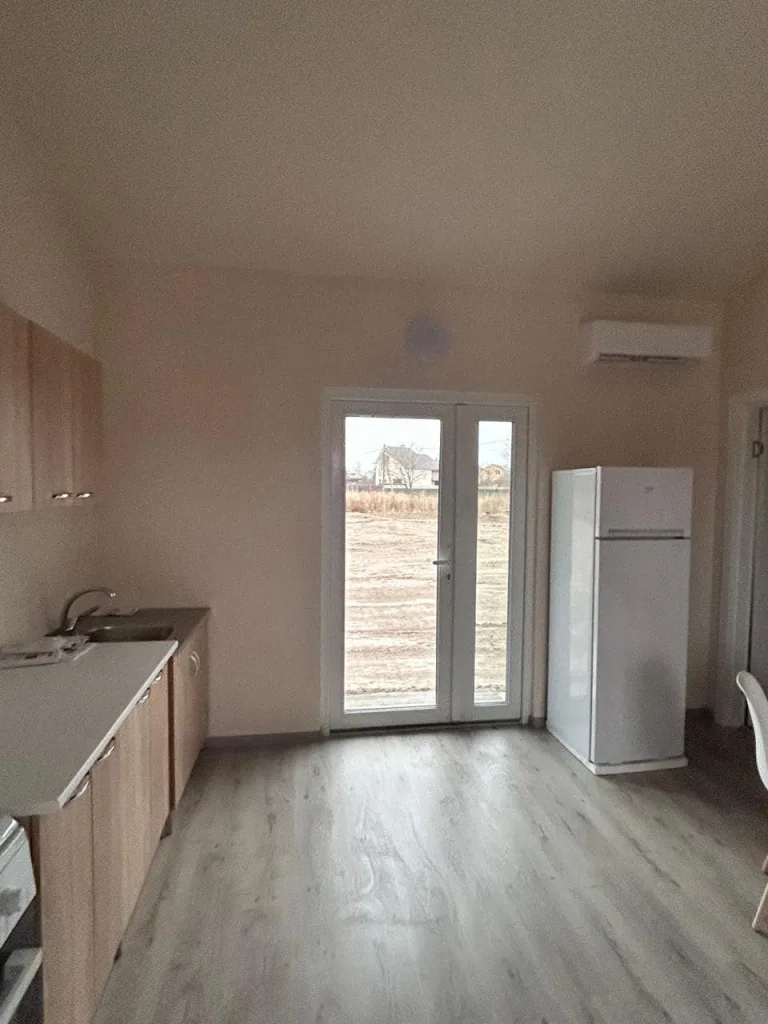
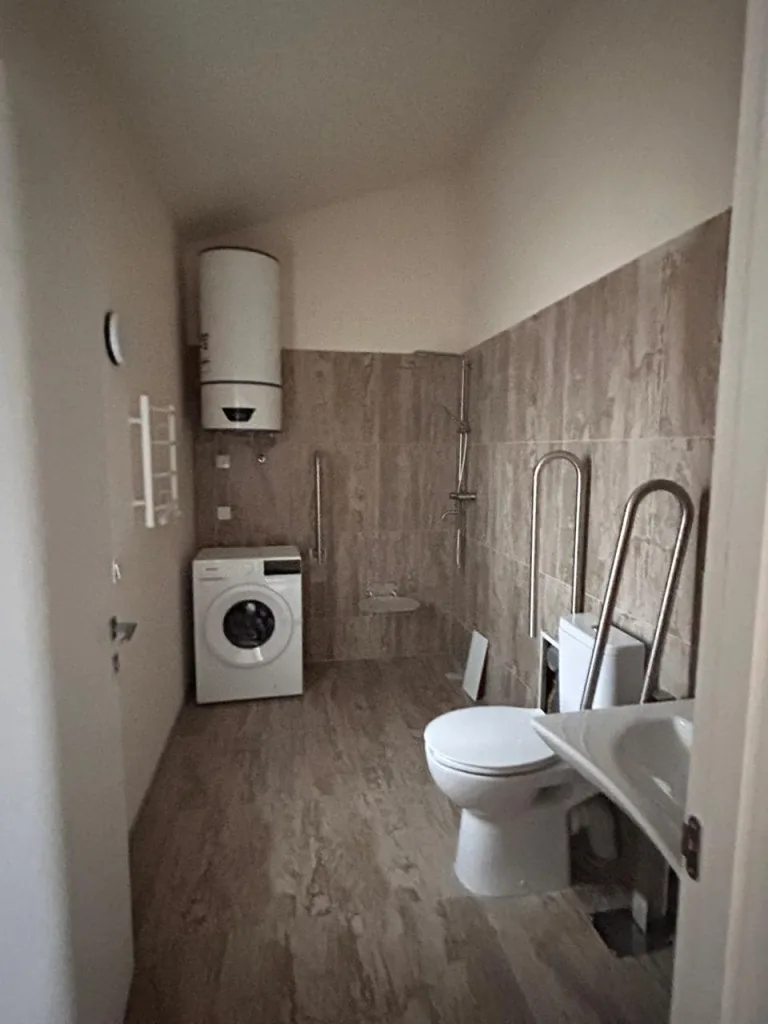
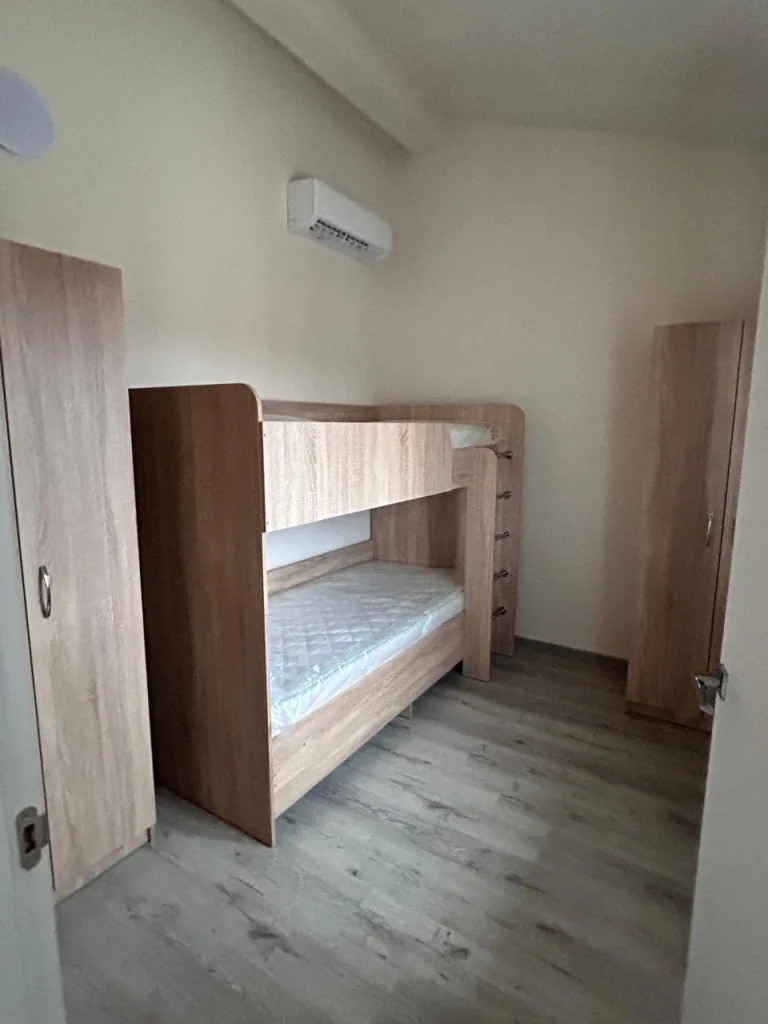
Voice of the Administration
“Today, the keys to the houses were received by displaced families from Donetsk, Luhansk, Kherson, and Dnipropetrovsk regions. Among them are also three families from Zhytomyr, whose apartments were destroyed as a result of shelling,” says Acting Mayor Halyna Shymanska. “The Red Cross took on the construction of the houses and their equipment. The city financed all communications. The preparation of infrastructure and planting of greenery cost the city 35 million hryvnias. The houses are owned by the Zhytomyr city territorial community. Residents live here under a contract with the city council. According to the contract, they will live here as long as they can and want. If someone wants to leave, the next family in line will move into the house.”
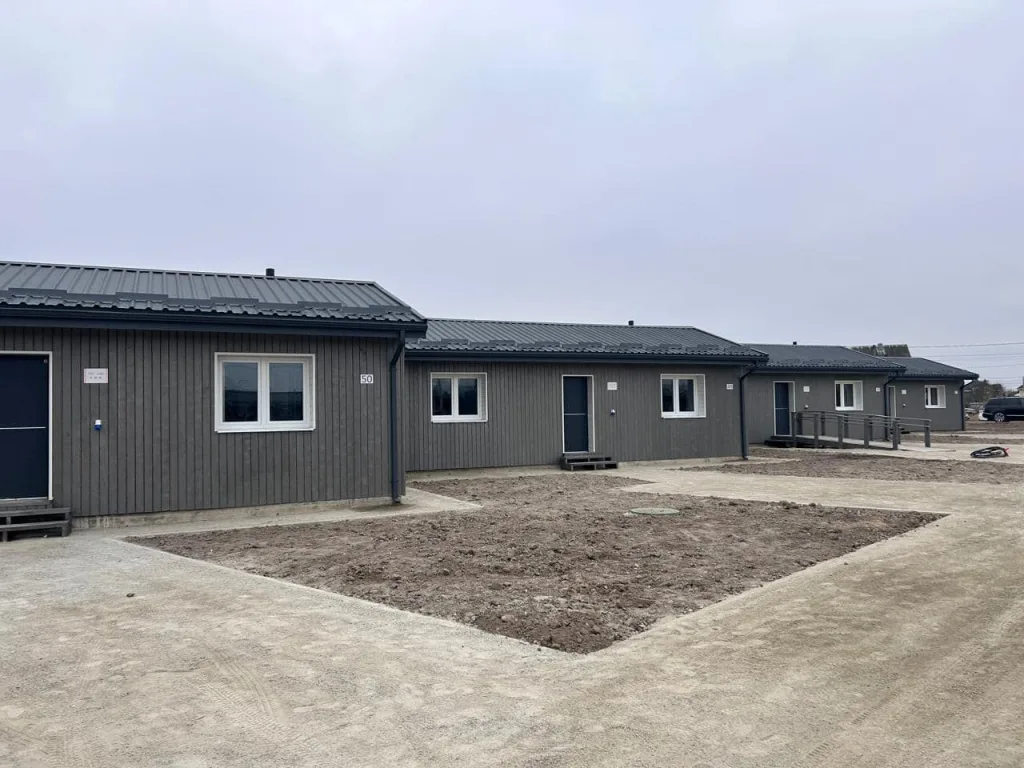
Read also: Greenpeace Ukraine Director Natalia Gozak: “After the war, there should be a country left suitable for the life of future generations”
Voice of the People
“Mom, can I go for a walk today?” – the blonde teenager impatiently tugs at the woman with bright lipstick. “Timur, wait,” she cuts him off and listens attentively.
“Families of internally displaced persons are invited to speak,” announces the host. The blonde woman squeezes through the crowd and approaches the microphone.
“First of all, I want to thank each of our defenders because without them we wouldn’t be standing here today,” she smiles. “Among them is also my husband, who has been defending our country since 2014 and has been in all the hotspots he could be. I want to thank them, thank the Red Cross, thank the city council for the fact that today we have a home where we can stay as long as we need. Everything is here, the school is nearby, the kindergarten is nearby, communication, civilization. Sincerely thank you from my community and from me personally.”
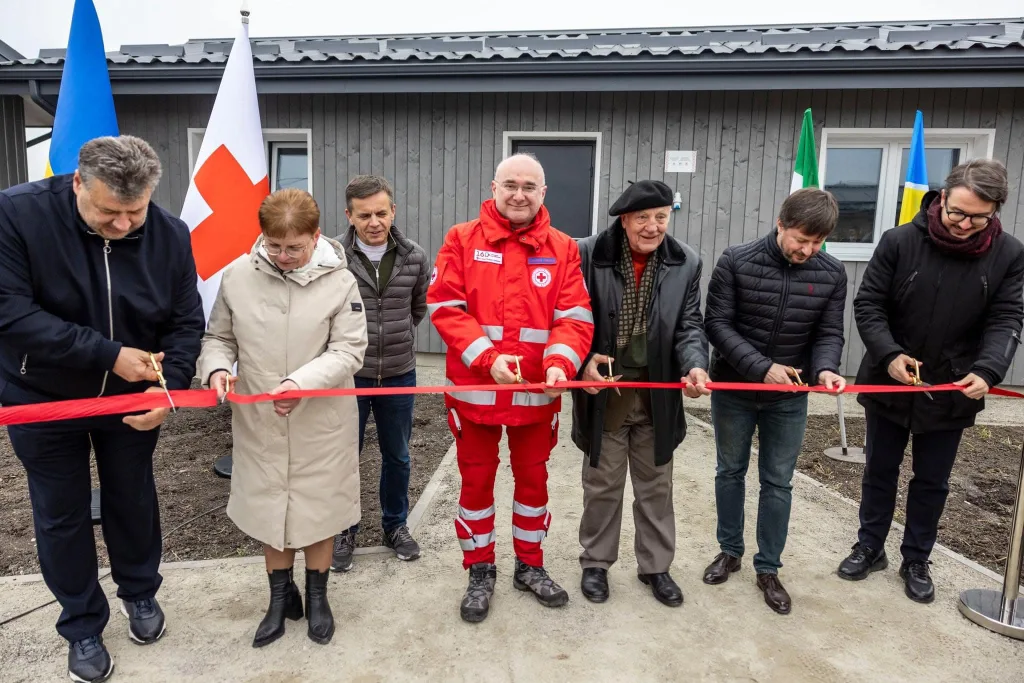
The woman disappears, and the distinguished guests proceed to the ceremonial ribbon-cutting. Journalists catch officials, officials greet each other. In the white tent, Red Cross workers distribute tea.
An elderly man and woman happily head to their new home, number 16. Svitlana and Volodymyr left Donetsk in April 2022. “We rented an apartment, very expensive. And we got this house because our son is a soldier. He has been fighting for three years.”
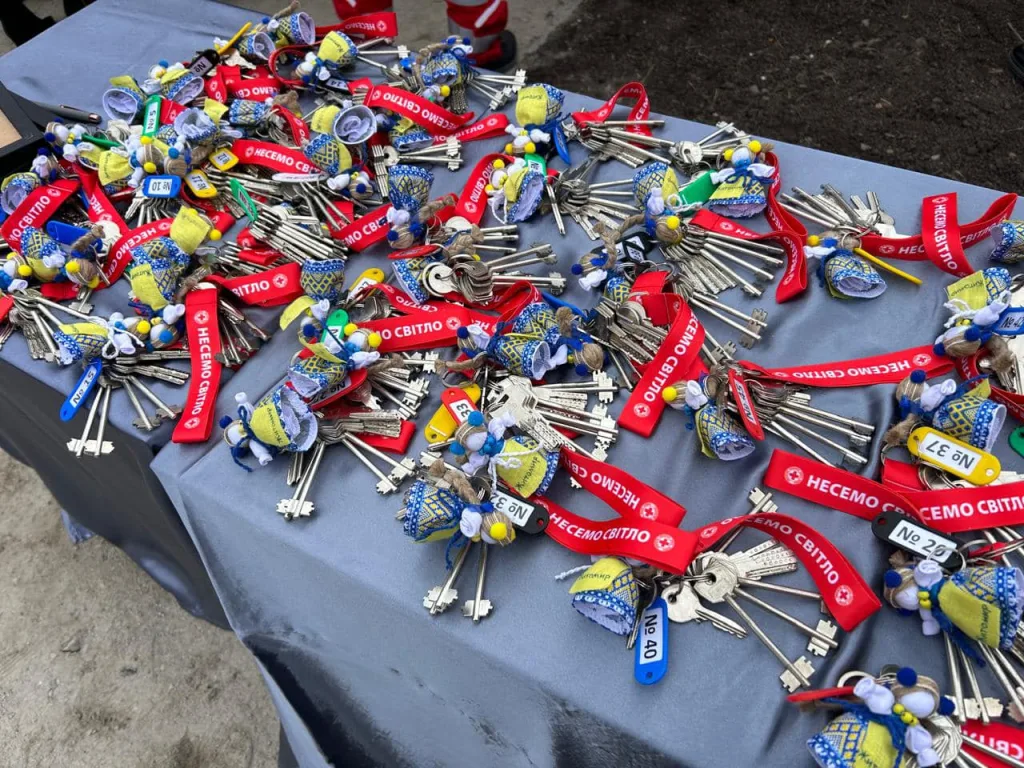
Read also: Shulyak: IDPs make a difficult choice when faced with a dilemma: to live under occupation or in poverty without state support
“An old tree won’t take root anywhere”
Another smiling woman, Iryna, is also happy with her new home. “We were under shelling for six weeks. And in April we left for the Kirovohrad region,” she says in pure Ukrainian. “Actually, we were taken to Lviv. But, you know, I don’t know Ukrainian very well. I studied in a Russian school.”
When told that her Ukrainian is excellent, the woman blushes, smiles, and explains: “I’ve been here for three years. I learned.”
Iryna lives with her granddaughter. “Sometimes it was so bad that I didn’t want to live. Such terrible longing! It’s like transplanting an old tree. It won’t take root anywhere. I tell my granddaughter, maybe we should go back? And she says, ‘Grandma, where to go back?’ There’s nowhere to go…”
Iryna says that she and her granddaughter have been waiting in line for a modular house since 2022. “At first, they said they would only give it to the military. But several families ahead of us in line refused – they bought their own apartments. So we were lucky.”
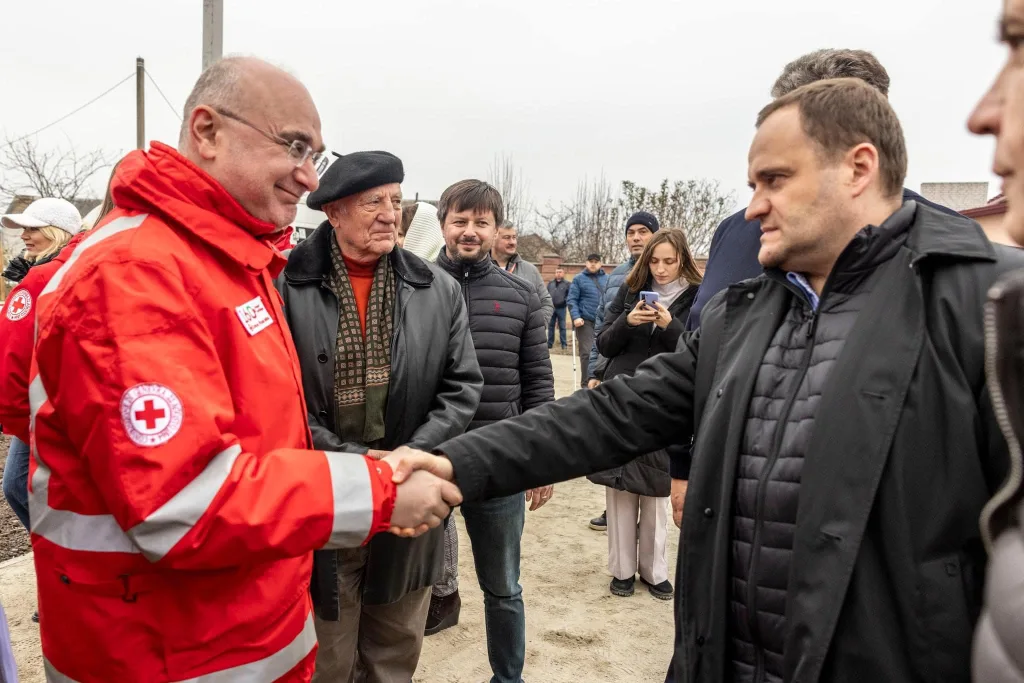
Red Cross workers dismantle the white tent. Happy people with keys quickly disperse to their homes. Officials finish their conversations and get into their cars.
A red Zhiguli loudly drives up to the first “model” house. The man in the burgundy jacket gets out of the car, opens the trunk. The blonde woman with bright lipstick takes a bag and carries it inside.
Read also: Anna Kuzmenko: “Previously, a bone marrow transplant in Ukraine was just a dream. Now it’s a reality”



